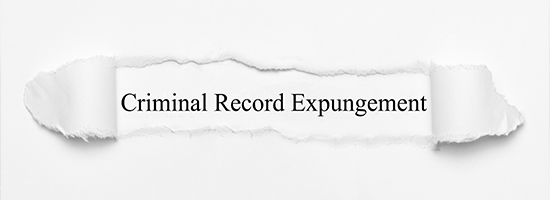
UNDERSTANDING EXPUNGEMENT IN TEXAS
A criminal record, even one comprising only a misdemeanor offense, can harm you for a significant time. It can affect where you live, whether you can get a loan, and what kind of employers will hire you. In the United States, the unemployment rate for people who have been incarcerated for a crime is an estimated 27%. Compare that to the national unemployment rate in November 2021 of 4.2% and you can understand the struggle that formerly incarcerated individuals face.
The fact is, you never have to set foot in jail or prison to be haunted by a criminal record. You can just be charged with a crime and not ever convicted to suffer. Expungement may provide the best opportunity you will ever have to erase your criminal record. If you are in Dallas, the Dallas Metro, or North Texas, The Linder Firm can help.
As a former prosecuting attorney, Phillip Linder understands a prosecutor’s drive to charge someone with a crime in pursuit of justice. As a criminal defense attorney, Attorney Phillip Linder also understands the devastating consequences those charges and convictions can have on a person’s life long after they have paid the price of an arrest or conviction.
What is Expungement?
Expungement, or “expunction,” removes any trace of criminal history from your record. If you had an offense that qualifies for expungement—and many offenses do not—and you successfully go through the process of petitioning the court to expunge a record, you will no longer have a criminal record.
You must file a Petition for Expunction of Criminal Records with the court. You will be the petitioner and you will be required to list all respondents. Respondents would include everyone who might have a copy of your criminal record, such as law enforcement, court, and governmental entities. If the court grants your petition, the respondents will be notified to eliminate your record. Although you can petition the court on your own, it is wise to work with a criminal defense lawyer to help ensure that the petition includes an exhaustive list of respondents.
What Appears on a Criminal Record in Texas?
To fully understand the ramifications of expungement of a criminal record, you should know what appears on a criminal record in Texas. Your full name and any aliases, your date of birth, gender, and ethnicity, a physical description, mug shots, fingerprints, details about alleged crimes, indictments, arrest information, disposition of your case, and conviction details are included. Even if you were never convicted, charges were dropped, or you completed the terms of deferred adjudication, the rest of your criminal history still exists and is a matter of public record.
Who Qualifies for Expungement?
Eligibility for expungement is quite limited. The privilege is reserved for those charged with a Class C misdemeanor—the least serious of all crimes in Texas—for which you were granted a deferred adjudication. Deferred adjudication is when the court does not convict you for the misdemeanor; however, it orders you to complete certain terms and conditions before it will close your case.
You will also be eligible for expungement if you were never convicted of any misdemeanor or felony charges because charges were dropped or never filed, you were acquitted of the charges, or your conviction was pardoned.
There are waiting periods to petition for expunction, even when no charges are ever filed. The periods are three years for felonies, a year for Class A and B misdemeanors, and 180 days for Class C misdemeanors. Moreover, if charges are filed, you must wait until the statute of limitations for each and every crime you were arrested for expires.
What Are the Benefits of Expungement?
If your record has been expunged, any time a prospective employer or mortgage lender or someone else runs a background check, they will find nothing. When completing a job, college, or loan application, you will be able to legally state that you have no criminal record. There will be no criminal record to disqualify you from employment, college admission or student loan eligibility, or justification for a higher interest rate on a home mortgage.
What is Non-Disclosure?
Non-disclosure is the process of petitioning the court to seal a record—or in some cases, when the court automatically seals a record. Unlike expungement which erases the record, non-disclosure seals it from the public. A sealed record, however, is still accessible to certain parties, including law enforcement, the court (primarily for sentencing purposes in future convictions), and certain government entities. On the other hand, you are not required to disclose a non-disclosure on any type of application.
Some crimes never qualify for expungement or non-disclosure. These include convictions or deferred adjudication for any crime for which you must register as a sex offender, murder, injuring a vulnerable person, aggravated kidnapping, child endangerment, stalking, or violation of bond conditions for certain crimes.
How The Linder Firm Can Help You
For those who qualify, expungement can close the book on an arrest and open the door to opportunities you would otherwise be unable to pursue. The process begins by consulting a criminal defense attorney about your eligibility for expungement or non-disclosure. Start the process in Dallas, the Dallas Metro, and North Texas today by calling Attorney Phillip Linder.
